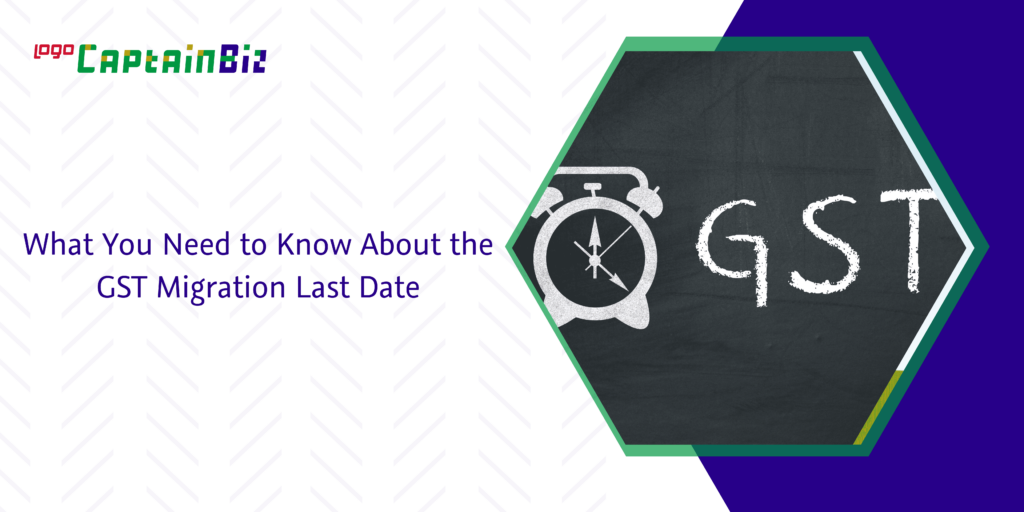The Goods and Services Tax (GST) considerably changed Bangladesh’s tax system when it first arrived. GST sought to open the economy more broadly, streamline the tax structure, and eliminate levies piled on top of one another. Everything you need to know about the GST migration final date will be covered in this post, along with the reasons behind it, who needs to migrate, the procedure to follow, and what happens should you miss the deadline.
What is GST Migration?
The process by which companies registered under former tax systems—such as VAT, Service Tax, etc.—then moved to the GST system is known as GST migration. Targeting the consolidation of various indirect taxes into a single, uniform system, this change was required of all current taxpayers. Under the migration process, businesses were obliged to register for GST registration, get a GSTIN (Goods and Services Tax Identification Number), and start using the new tax structure for filing and reporting.
Guaranteeing that every company was under one consistent tax structure was the primary goal of GST migration. Old tax registrations were transferred to the GST system, company records were updated, and the tax systems matched the new legislation. The last chance for companies to finish this procedure and guarantee their activities follow the law comes from the previous GST migration date.
Why is the GST Migration Last Date Important?
The final day of the GST migration is crucial as it determines the deadline for which companies must finish their migration. Ignoring this deadline might have various harmful effects. The most immediate impact is that companies won’t be able to claim Input Tax Credit (ITC) on purchases or charge GST on sales. This will significantly impact cash flow as companies must balance out taxes paid on input before lowering their tax load.
Who Needs to Migrate to GST?
Only some companies should switch to GST. Businesses previously registered under the previous indirect tax systems—such as VAT, Service Tax, and Excise Duty—are the main ones needing transfer. These companies must switch to GST to guarantee ongoing compliance with the revised tax code. Companies that satisfy the yearly turnover requirement for obligatory GST registration must also go through the migration procedure.
What Are the Key Dates and Deadlines for GST Migration?
The GST transfer procedure started in 2017, with many registration deadlines stretched out. The government has granted several extensions in response to the difficulties companies experienced during the changeover. Still, companies must keep current with the most recent updates on the GST migration date. The government could change or extend deadlines annually based on the situation, including administrative difficulties or economic considerations.
Companies should routinely consult the official GST site for updates on migration dates to guarantee timely compliance. Companies that have switched to GST may verify their registration by logging into their GST accounts. For those who have yet to relocate, the final day for GST registration marks a significant event that should be noticed.
How Can You Complete the GST Migration Process?
The GST migration procedure consists of numerous phases. First, companies must confirm whether they are qualified for GST registration using their yearly sales, commercial activity, and other criteria. They may start the GST registration application on the official GST site if qualified.
Throughout the application process, businesses must provide certain records, such as evidence of business registration, a PAN card, proof of business address, bank account details, and other required data. After submission, businesses will get their GSTIN, which lets them legally operate under the GST system.
What effects would missing the GST migration last date have?
Ignoring the GST migration final date might have various significant effects. The most direct impact is that companies could need help inputting tax credits on purchases or collecting GST from consumers. Consequently, companies will need help to balance the tax they pay on inputs against the tax they earn on sales, thereby increasing the total tax load.
Besides the financial influence, companies that miss the migration date might also have fines and penalties for non-performance. Penalties and interest on late registration are stipulated under the GST Act, which might aggravate already financially strained companies trying to adjust to the new tax structure.
What Support Is Available for Businesses During the Migration Process?
The government has given companies tools to help with migration. The official GST site provides a suite of resources, tutorials, and FAQs to assist companies in comprehending the migration stages and needs. Companies may also get support from GST helplines or speak with GST consultants.
Professional tax experts and accountants focused on GST registration may assist companies needing more guidance in navigating the procedure. These professionals may also help companies comply with continuous GST regulations, including claiming ITC and completing returns.
What Should You Do if You Miss the GST Migration Last Date?
You have to act right now if you miss the GST migration final date. Although there could be some chances to register late, typically, it results in fines and more paperwork. Any relevant late penalties will be paid for, and you must make sure all necessary paperwork is sent in to finish the registration process.
Though this is only sometimes certain, companies that miss the deadline might sometimes be given extensions or chances for late registration. Even if you miss the deadline, finishing the migration procedure early will help prevent further issues.
Also, Read – How to Choose the Best GST Invoice Software for Your Business Needs
Conclusion
The final date for GST migration is vital for companies switching to the new tax system. Ignoring the deadline could cause business interruptions, financial fines, and a notable tax load rise. To help prevent these issues, businesses should start the migration process well in advance, make sure all paperwork is valid, and keep current with the most recent government pronouncements about deadlines.

